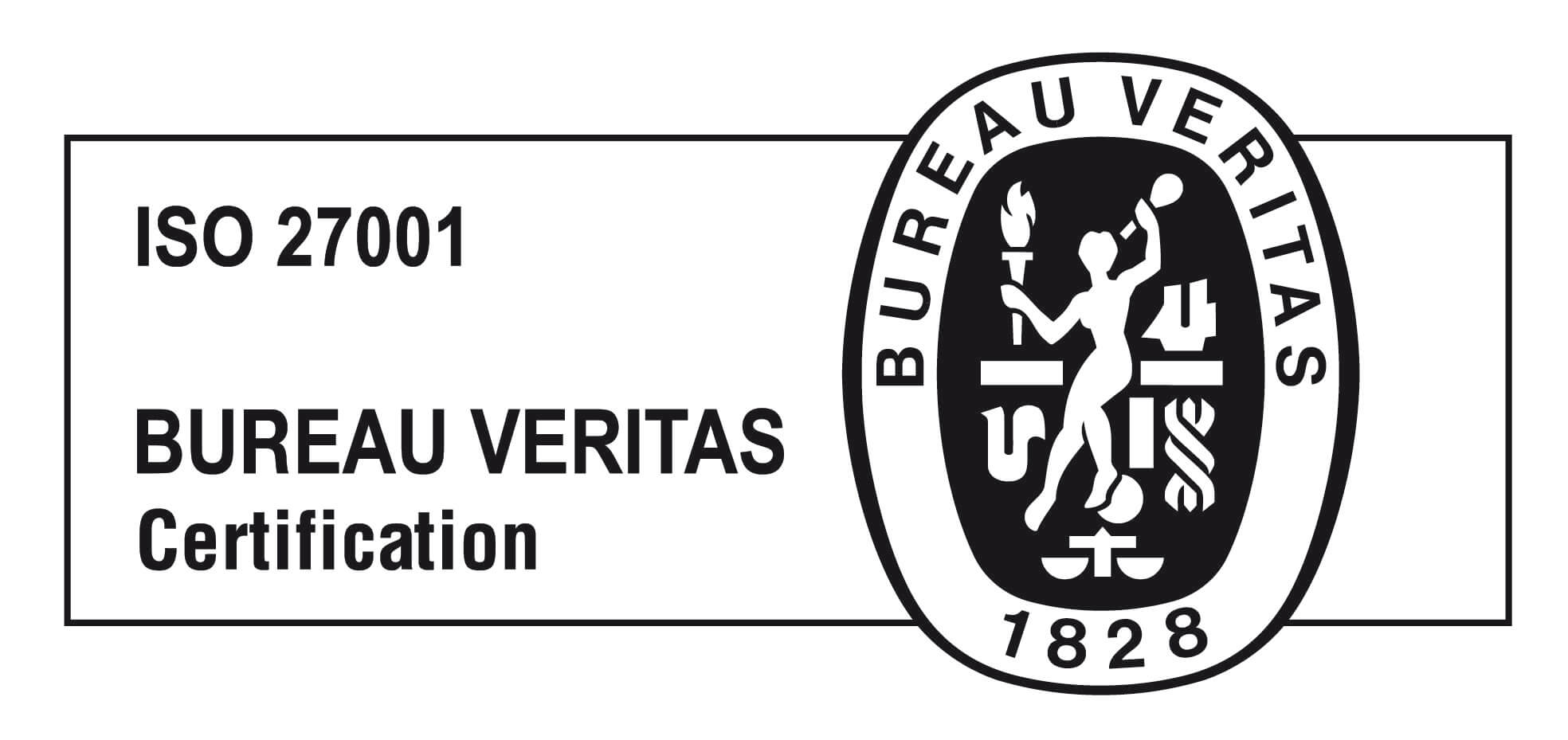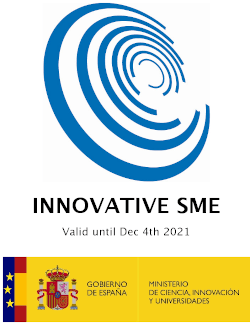The next January 15th Wikipedia turns 15 years. In Bitergia, we don’t want to miss the opportunity to say Happy Birthday and congratulate Wikimedia Foundation for “encouraging the growth, development and distribution of free, multilingual, educational content, and to providing the full content of these wiki-based projects to the public free of charge“.
Wikipedia is one Wikimedia’s projects. In fact, it is the oldest, and largest, Wikimedia project, predating the Wikimedia Foundation itself. Wikipedia is often described as a wiki, but it is in fact a collection of over 200 wikis, one for each language, all running on the MediaWiki software. MediaWiki is a free software open source wiki engine, originally developed for and used by Wikipedia, that now is used on other projects of the non-profit Wikimedia Foundation. MediaWiki is freely available for others to use (and improve), and it is used by severals organizations around the world.
After 15 years, many contributors have participated in the MediaWiki project. In Bitergia, we collaborate with the Wikimedia Foundation by analyzing and providing up-to-date development community metrics. The project is characterized by being very inclusive accepting code. Let’s see some of the numbers behind the development of the Foundation’s project in these years (all data available at Wikimedia Foundation Dashboard so feel free to play with the dash and find out data you are interested in):
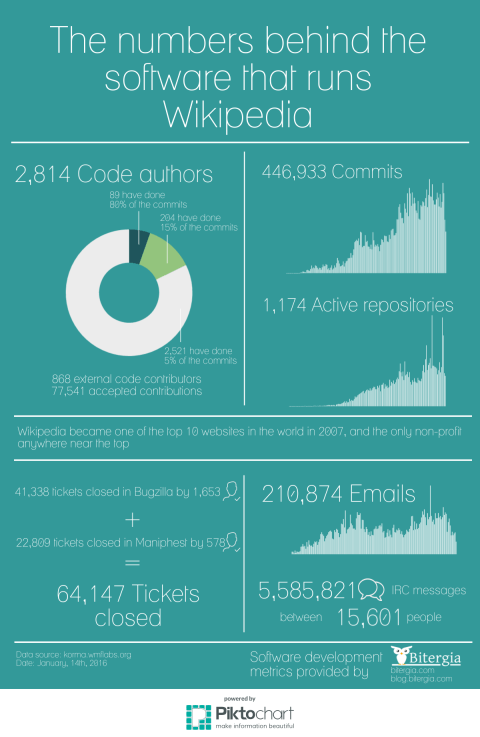
These are some of the big numbers, however there are much more interesting data in the project. Some examples: Who is contributing code, what regions have more weight in the development or how is the evolution of the merged commits? Take a look in the Wikimedia project evolution:


Wikimedia has started using Phabricator as project management tool last year. We have updated our Metrics Grimoire toolkit to support it and be able to get data from its issue tracking system, Maniphest, and provide issues management metrics like the analysis of the efficiency closing tickets in the project.

As you may know, we are testing Kibana-based development dashboards that allow us easier filtering and re-configure the dashboard, and share the results with those filters. We have a couple of proof of concepts about Wikimedia Foundation. The Mediawiki Git activity dashboard gives us some information about Commits and Authors over the time, or what is more interesting which organizations and when have contributed to the project.
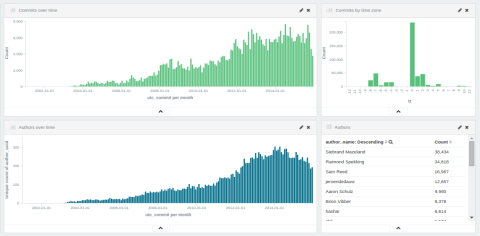
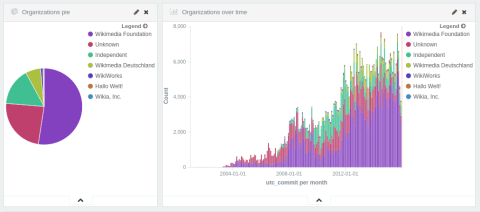
The Mediawiki Gerrit Activity Dashboard besides the Reviews status and Change submitters, provides information about the patchsets and time until merger in the review process and its trends:
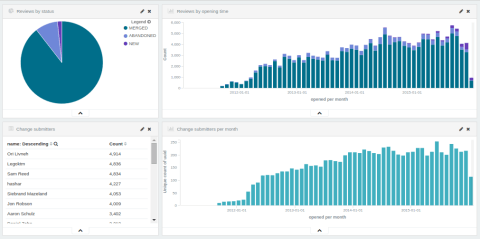
Number of patchsets per review process is the number of versions of the change that are requested by reviewers. It is a proxy for the effort needed to convert the original change proposal into something that reviewers accept.

Time until patch is merged per review process is a very direct proxy of how long a change is delayed due to code review: for how long the review process is open, since the moment a patchset is proposed, to the moment a version of it is merged.

15 years have given many data! Keep visiting the Wikimedia development community dashboard to see the evolution of this great project!
If you are interested in the FLOSS development metrics topic, don’t miss next FLOSS Community Metrics meeting in Brussels, on January 29th, in Brussels. There is a free workshop included!





